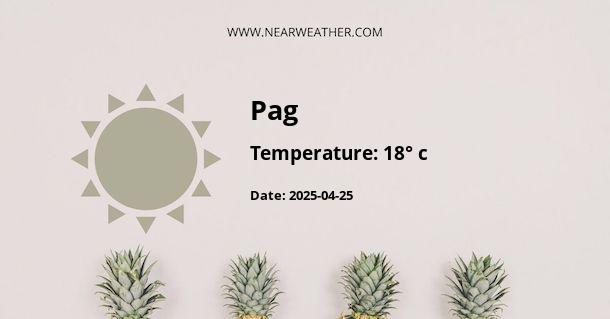Introduction to Pag's Climate and Weather
The climate of Pag, a picturesque island located along the Adriatic Sea in Croatia, is defined by its position amidst the coastal and mountainous regions. This has endowed Pag with a unique microclimate, indicative of Mediterranean influences. Understanding Pag's weather and climate is crucial for both residents and visitors to plan for agriculture, tourism, and daily life.
Geographical Influence on Pag's Climate
Pag's climatic conditions are influenced by its peculiar topography. The island is relatively long and narrow, with barren, rocky landscapes and low vegetation, which contribute to its susceptibility to the bura wind. This strong, northeasterly wind is a defining feature of the local weather patterns.
Seasonal Climate Overview of Pag
Spring
- March: The transition to milder weather begins. There's a mix of rainy days and increasing sunshine.
- April: Temperatures continue to rise, and wildflowers start to bloom.
- May: Marked by pleasant weather with more sunshine and less precipitation.
Summer
- June: The true onset of summer, with dry conditions and warm temperatures that are perfect for swimming.
- July: The height of summer brings hot, dry weather, ideal for beach-goers and outdoor activities.
- August: Conditions similar to July, with the possible increment of humidity.
Autumn
- September: The weather remains warm but transitions toward cooler evenings.
- October: Temperatures drop further; this month can be unpredictable, with possible rain showers.
- November: Significantly cooler and more rain, indicating the onset of winter conditions.
Winter
- December: Marked by cooler temperatures and increased precipitation. Bura winds become more frequent.
- January: The coldest month on Pag, with potential for snow despite its coastal position.
- February: Similar to January, though days begin to slowly warm as spring approaches.
Year-Round Weather Patterns on Pag
Temperature Averages and Extremes
| Month | Max | Min |
|---|---|---|
| January | 7 | 2 |
| February | 8 | 3 |
| March | 12 | 5 |
| April | 16 | 9 |
| May | 21 | 13 |
| June | 25 | 17 |
| July | 28 | 20 |
| August | 28 | 20 |
| September | 24 | 16 |
| October | 19 | 12 |
| November | 14 | 8 |
| December | 9 | 4 |
Precipitation Patterns
Pag experiences its peak rainfall during the colder months, particularly from October to January. The summer months are characterized by a pronounced dry spell, which can be attributed to the dominating high-pressure systems typical of Mediterranean climates.
Wind Patterns
The island is often at the mercy of the aforementioned bura wind, a katabatic wind that is most potent during the winter but can occur year-round. The bura influences temperature and humidity levels, often bringing clear skies after a period of adverse weather conditions. In contrast, the jugo wind, which blows from the southeast, often precedes rain and brings with it warmer, humid air.
Environmental and Human Impacts on Pag's Weather
Human activities and environmental factors play a significant role in shaping the local weather on Pag. Over the decades, deforestation and overgrazing have transformed large areas into barren landscapes known as 'pašnjaci,' which have a limited ability to retain moisture. The resulting albedo effect can influence local temperatures and even wind patterns.
Conclusion
Understanding the climate and weather patterns of Pag is essential for those who wish to engage in agricultural activities, travel plans, or simply enjoy the natural beauty of the region year-round. Its distinct climate shaped by geographical features and human activities offers both challenges and charms to the inhabitants and visitors of this Adriatic gem.
A - Pag's Latitude is 44.445000 & Longitude is 15.057500.
A - Weather in Pag is 7° today.
A - Climate Conditions in Pag shows overcast clouds today.
A - Humidity in Pag is 64% today.
A - Wind speed in Pag is 8.93 km/h, flowing at 139° wind direction. today.
